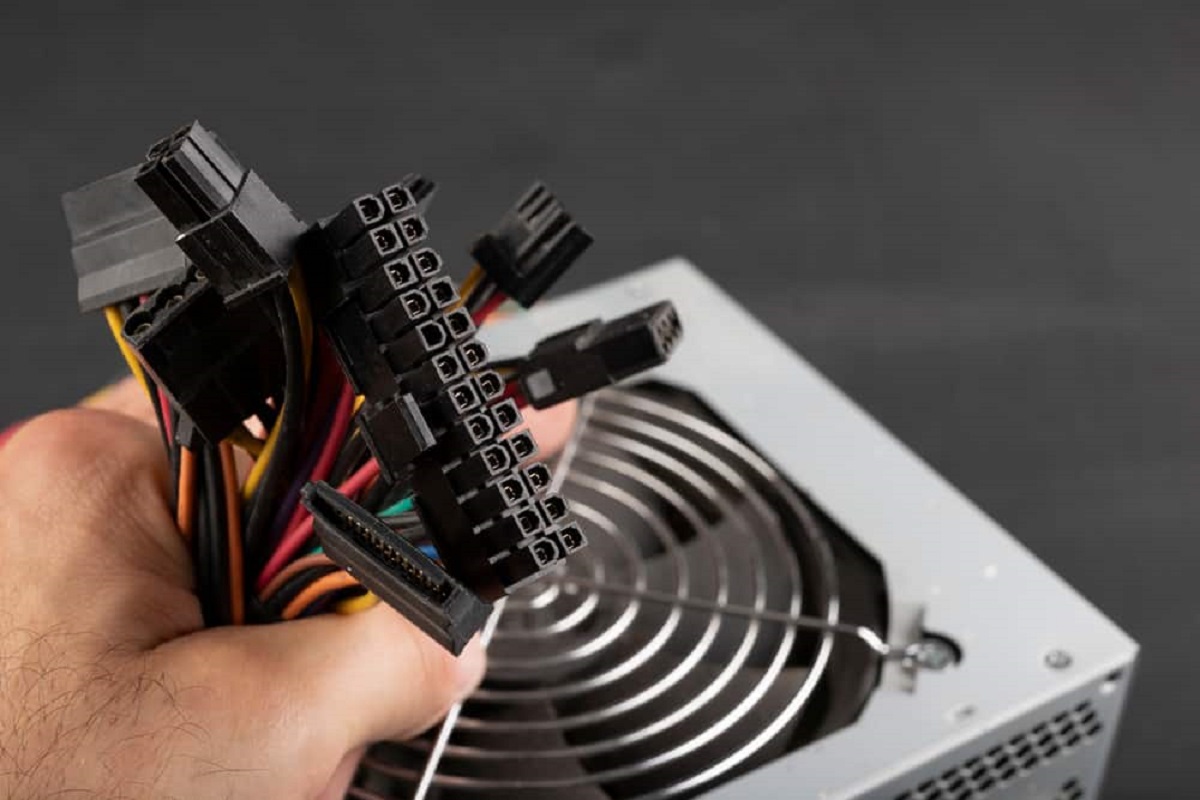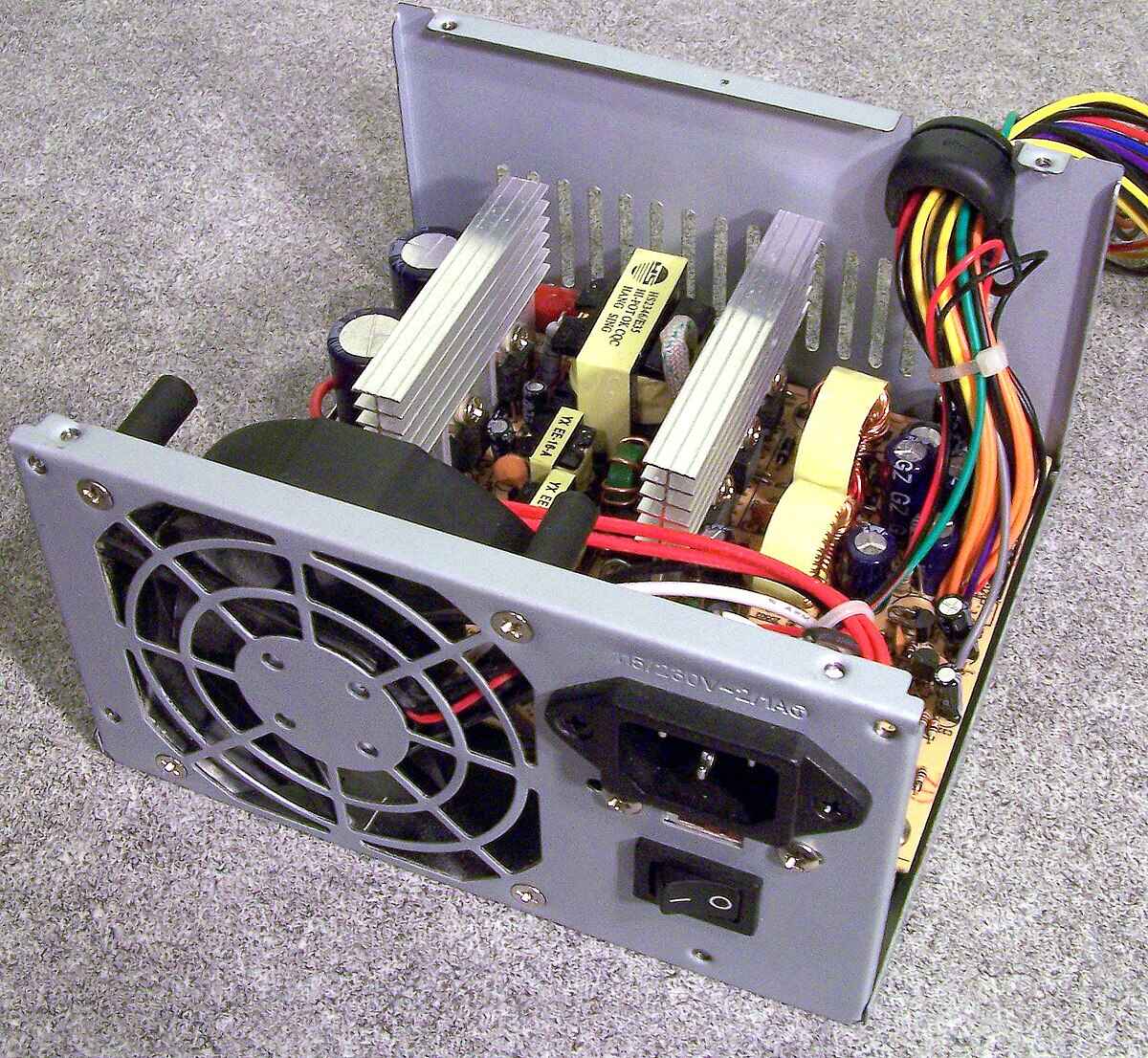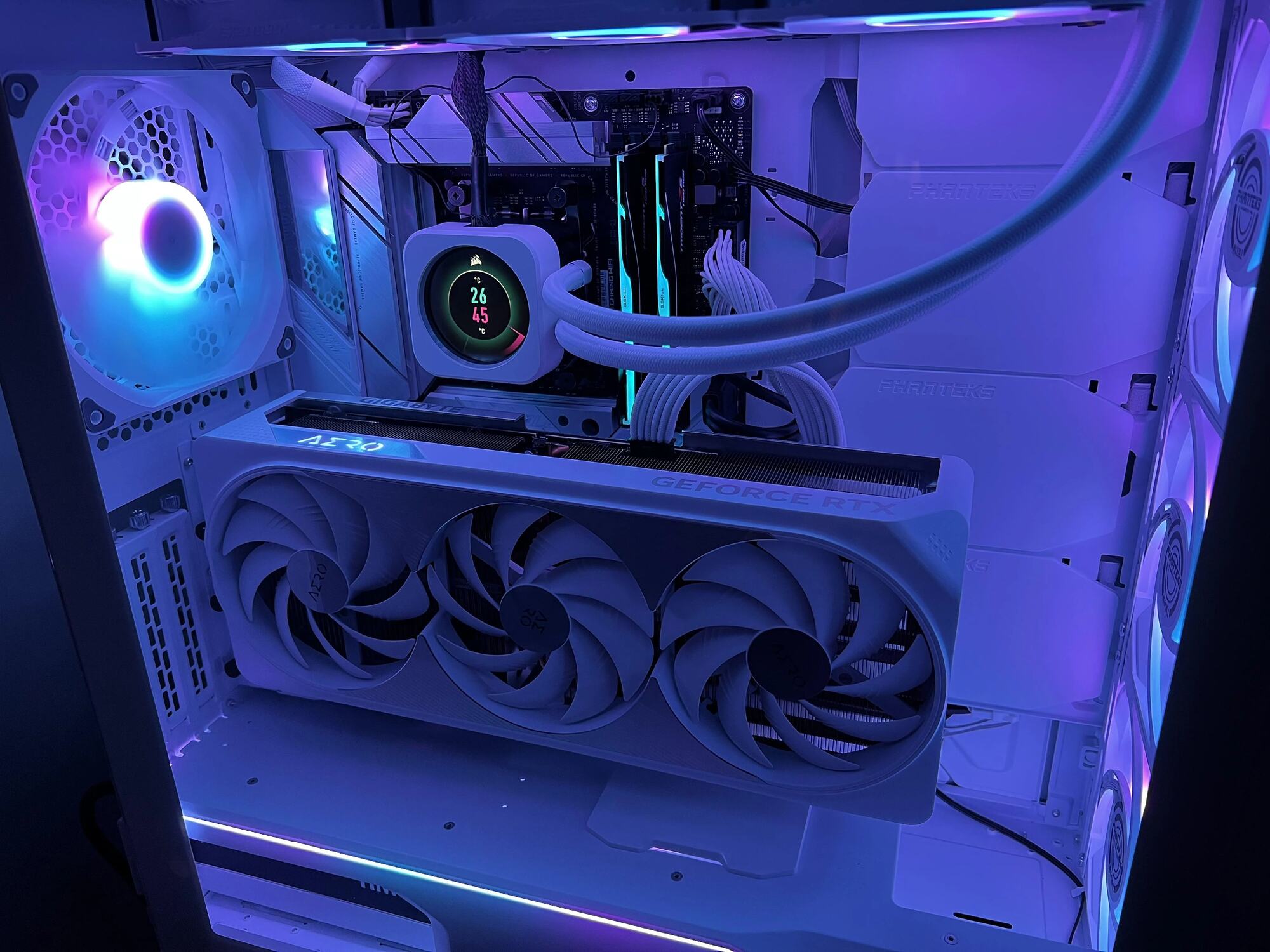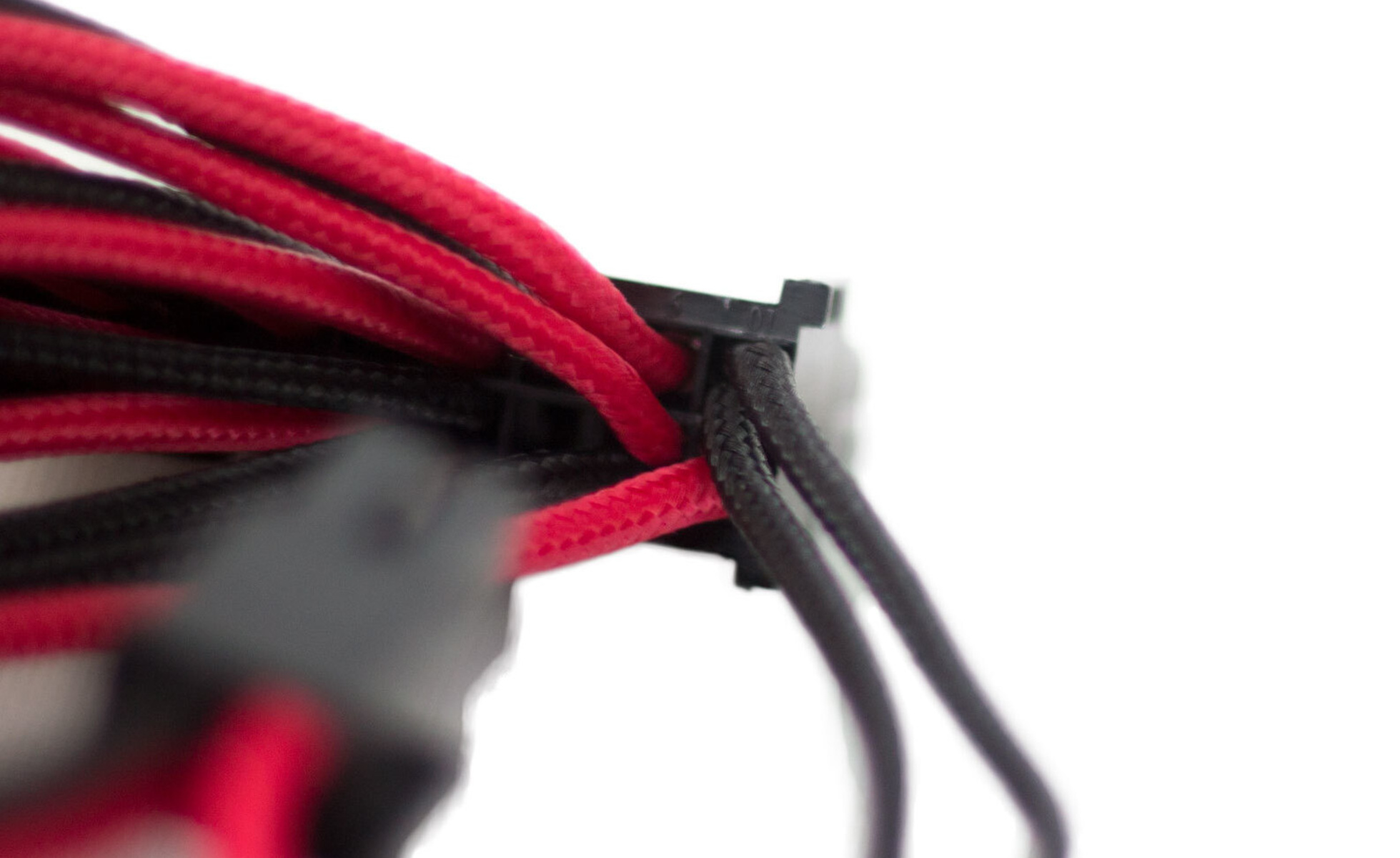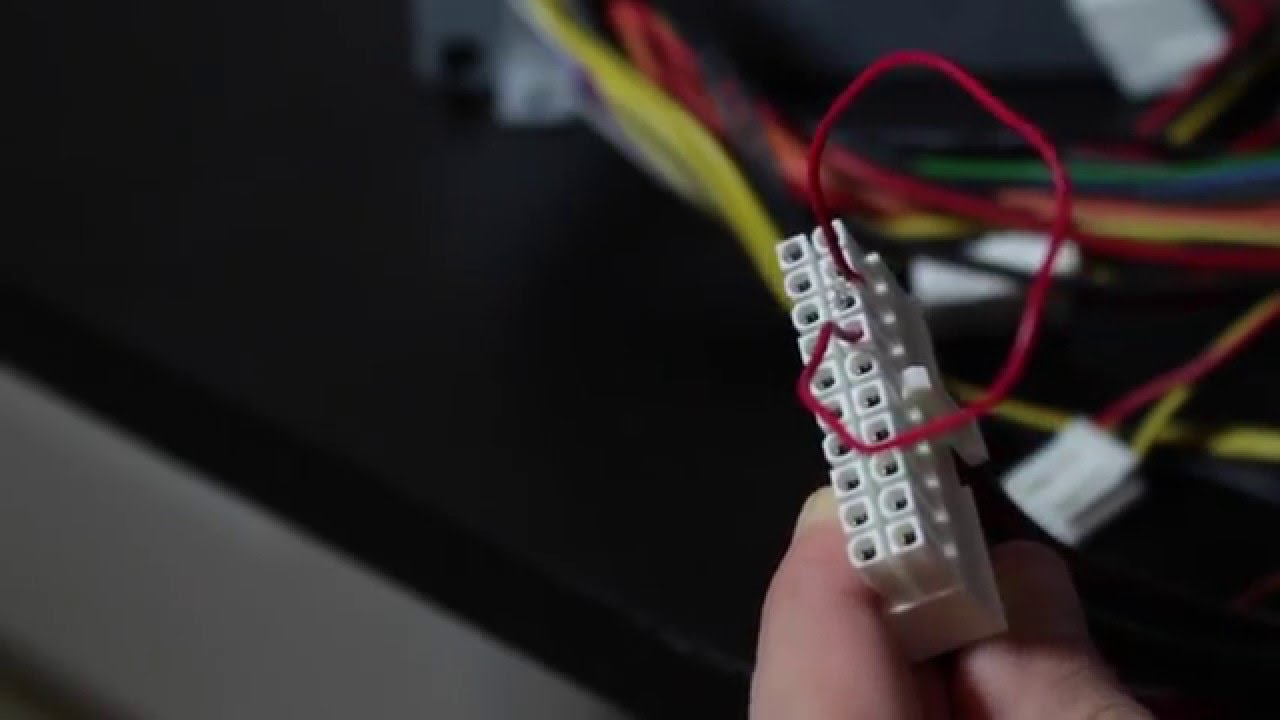Introduction
A PC PSU, or power supply unit, plays a crucial role in providing a steady flow of electricity to all the components of a computer. However, there are instances when a PSU may suddenly pop or fail, leaving users puzzled and frustrated. Understanding the causes behind a PSU popping can help prevent damage to your computer and ensure its optimal functioning.
A popping PSU can be alarming, as it may lead to a complete system shutdown and the potential loss of important data. It is essential to identify the underlying causes of this issue to avoid recurrence and potential damage to other components.
In this article, we will explore the common reasons why a PC PSU may pop, shedding light on power surges, overloading, faulty components, dust and overheating, aging and wear, as well as electrical issues. By understanding these causes, you will be better equipped to troubleshoot and prevent PSU failures.
Before we delve into the various causes, it is important to note that a PSU popping is not a definitive indication of a faulty PSU. There may be other factors at play, and it is crucial to identify the root cause accurately. Consulting a professional or knowledgeable technician is advisable if you are unsure about diagnosing the issue yourself.
Power Surges
Power surges, also known as voltage spikes, occur when there is a sudden increase in the electrical voltage supplied to your PSU. These surges can be caused by lightning strikes, utility grid fluctuations, or even the malfunction of electrical equipment.
When a power surge happens, it can overload the PSU, leading to a popping sound and potential damage to its components. The sudden increase in voltage exceeds the PSU’s capacity, causing it to fail in order to protect the rest of the computer system.
To prevent power surges from damaging your PSU, it is advisable to invest in a surge protector or an uninterruptible power supply (UPS). These devices act as a defense mechanism, absorbing excessive voltage and regulating it to prevent any damage to your computer’s power supply.
In addition to using surge protectors, it is also crucial to regularly check the power outlets and ensure that they are properly grounded. Faulty wiring or improperly grounded outlets can contribute to power surges and increase the risk of a PSU popping.
If you suspect that power surges are the cause of your PSU popping, it is recommended to contact a professional electrician to inspect your electrical system. They will be able to identify any underlying electrical issues and recommend appropriate solutions.
Overloading
Overloading occurs when the PSU is tasked with supplying more power than its maximum capacity. This can happen when the computer system demands more power than the PSU can handle, either due to the addition of power-hungry components or excessive usage.
When a PSU is forced to operate beyond its limits, it can result in overheating and potentially cause a popping sound. The strain on the PSU’s components can lead to their failure and subsequent shutdown of the computer system.
To prevent overloading, it is important to carefully consider the power requirements of all the components in your computer system. Each component, including the CPU, graphics card, and hard drives, has specific power needs that should be taken into account when selecting an appropriate PSU.
When calculating the power requirements, it is advisable to choose a PSU with a wattage rating that exceeds the total power consumption of all the components in your system. This ensures that the PSU has sufficient power reserves to handle peak demands and reduces the risk of overloading.
If you suspect overloading as the cause of your PSU popping, it is crucial to assess the power needs of your computer system. Consider removing any unnecessary components or upgrading to a higher-capacity PSU to adequately support the power demands.
In addition to monitoring power consumption, it is important to have proper ventilation and cooling in your computer system. Overheating can also contribute to PSU failures, especially when the components are operating under high loads.
Regularly clean the computer case, especially the PSU fan and vents, to remove accumulated dust and ensure proper airflow. Consider installing additional case fans or a liquid cooling system if necessary. Keeping the components cool can help prevent overloading and prolong the lifespan of your PSU.
Faulty Components
Faulty components within the PSU itself can be a common cause of popping sounds. Over time, certain components, such as capacitors or transformers, may deteriorate or become defective, leading to malfunctions.
When a component within the PSU fails or becomes unstable, it can cause irregular power delivery or fluctuations, resulting in a popping sound. In some cases, these faulty components may cause the PSU to stop functioning altogether.
Component failure can occur due to various reasons, including poor quality components, manufacturing defects, or simply the natural wear and tear of the PSU over time. High temperatures, overclocking, and constant heavy usage can also contribute to the degradation of components.
To address faulty components, it is recommended to replace the PSU entirely. Attempting to repair or replace individual components within the PSU can be complex and may not guarantee a long-term solution.
When selecting a new PSU, it is important to consider the quality and reliability of the components used. Opt for reputable brands and models known for their durability and performance. Investing in a high-quality PSU can help minimize the risk of component failures and popping sounds.
Regular maintenance and cleaning of the PSU can also help prevent component failure. Inspect the PSU for any visible signs of damage, such as bulging or leaking capacitors, and promptly address any issues.
Lastly, ensure that the PSU is adequately protected from power fluctuations by using a surge protector or UPS. These devices can help prevent damage to the PSU caused by voltage spikes and electrical disturbances.
Dust and Overheating
Dust accumulation and inadequate cooling can significantly impact the performance and reliability of a PSU. Over time, dust particles can settle on the PSU’s components, including the fan and heat sinks, inhibiting proper airflow and causing overheating.
When a PSU overheats, it may emit a popping sound as the internal components expand and contract rapidly. This can lead to thermal stress and potential damage to the PSU’s circuitry.
To prevent dust buildup, regularly clean the PSU and the surrounding computer components. Use compressed air or a soft brush to remove dust from the fan, vents, and heat sinks. Make sure to power off the computer and unplug the PSU before performing any cleaning.
In addition to cleaning, ensure that your computer system has proper ventilation. Make sure the computer case has sufficient intake and exhaust fans to promote airflow. Consider positioning the computer in a well-ventilated area, away from heat sources or direct sunlight.
If your PSU is located in a particularly dusty environment, you may also consider installing dust filters for the intake fans. These filters prevent large dust particles from entering the system and accumulating on the PSU components.
Overheating can also occur if the PSU is operating at or near its maximum capacity for an extended period. This can place a heavy strain on the components and lead to thermal stress. To avoid overheating, ensure that the PSU you choose has a higher wattage rating than the power requirements of your computer system.
Furthermore, if you notice that the PSU fan is not functioning properly or making unusual noises, it may need to be replaced. A faulty fan can impede proper cooling and increase the risk of overheating and popping sounds.
By keeping your PSU and computer system clean and cool, you can significantly reduce the likelihood of overheating-related issues and improve the overall longevity of the PSU.
Aging and Wear
As with any electronic component, a PSU undergoes natural aging and wear over time. Continuous usage, temperature fluctuations, and exposure to dust and environmental factors can all contribute to the degradation of the PSU’s performance and reliability.
Over time, the internal components of the PSU may weaken or become less efficient, resulting in a higher risk of failures and popping sounds. Capacitors, in particular, are susceptible to aging and can lose their ability to store and deliver power effectively.
Aging and wear can be accelerated in cases of constant heavy usage or when the PSU is operating near its maximum capacity for extended periods. Additionally, frequent power cycling, such as turning the computer on and off repeatedly, can also contribute to the wearing out of the PSU.
To mitigate the effects of aging and wear, it is advisable to replace the PSU after a recommended lifespan of around five to ten years, depending on usage and quality. Upgrading to a new, more efficient PSU can help ensure reliable and stable power delivery.
Regularly monitoring the performance of the PSU is also important. Keep an eye out for any unusual noises, changes in fan speed, or power delivery inconsistencies. Address any issues promptly, as they may indicate aging or wear-related problems.
It is worth noting that higher-quality PSUs often have a longer lifespan and are built to withstand the rigors of extended use. Investing in a reputable brand and model can help minimize the effects of aging and wear.
Finally, the overall health of your computer system and its other components can also affect the lifespan of the PSU. By keeping the system clean, properly cooled, and adequately powered, you can reduce the strain on the PSU and prolong its longevity.
Regular maintenance, such as cleaning dust and debris, checking for loose connections, and ensuring proper ventilation, can go a long way in preserving the lifespan of your PSU and preventing premature failures.
Electrical Issues
Electrical issues within the power supply or the surrounding environment can contribute to a PSU popping. These issues can range from faulty wiring to power fluctuations and improper grounding.
Faulty or outdated wiring poses a significant risk to the stability and functionality of the PSU. Loose connections, exposed wires, or damaged cables can cause intermittent power supply and potentially lead to popping sounds. It is important to inspect the wiring and ensure it is properly installed and in good condition.
Power fluctuations, such as sudden voltage spikes or drops, can also impact the PSU’s performance. These fluctuations can be caused by external factors such as lightning strikes or issues with the utility grid. An unstable power supply can overload the PSU and result in popping sounds as it tries to compensate for the irregular voltage levels.
To mitigate electrical issues, it is recommended to use surge protectors or uninterruptible power supplies (UPS). These devices regulate the incoming voltage, protect against power surges, and provide a stable power supply to the PSU.
Proper grounding is crucial for ensuring the safe operation of the PSU. A lack of proper grounding can lead to electrical imbalances and potential damage to the PSU. If you suspect grounding issues, consult a qualified electrician to assess and rectify the problem.
In some cases, the location or environment of the computer system can contribute to electrical issues. For example, using multiple electronic devices on the same circuit can overload the electrical system and cause power fluctuations that affect the PSU. Separating high-power devices and spreading them across different circuits can help alleviate this problem.
If you are experiencing frequent popping sounds from your PSU, it is advisable to consult a professional electrician or technician. They can perform a thorough inspection of the electrical system, identify any underlying issues, and recommend appropriate solutions to ensure a stable and reliable power supply to your computer system.
Conclusion
In conclusion, a popping PSU can be an alarming and frustrating issue. Understanding the causes behind this problem is crucial for preventing damage to your computer system and ensuring its optimal functioning.
We have explored several common causes of a PSU popping, including power surges, overloading, faulty components, dust and overheating, aging and wear, and electrical issues. By identifying these causes, you can take proactive measures to prevent PSU failures and minimize the risk of damage to your computer system.
Investing in surge protectors or UPS devices can protect your PSU from power surges and fluctuations, while regular cleaning and proper cooling can help prevent dust accumulation and overheating. Carefully considering the power requirements of your computer system and selecting a high-quality PSU can also reduce the risk of overloading and component failures.
Remember to keep an eye on the age and health of your PSU, as aging and wear can impact its performance and reliability. Regular maintenance and addressing issues promptly can help extend the lifespan of your PSU.
Lastly, electrical issues such as faulty wiring or power fluctuations can contribute to a popping PSU. Ensuring proper grounding and consulting a professional electrician to assess the electrical system can help mitigate these issues.
By implementing these preventative measures and staying vigilant, you can minimize the risk of a popping PSU and enjoy a stable and reliable computer system.







